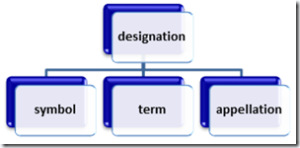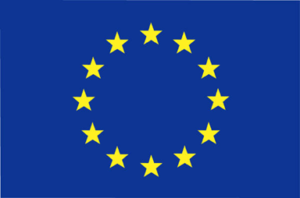This is a quick follow-up on last week’s explanation of what terminology is. I found the following short video while researching into terminology management practices in the US automotive industry. I’ll get out of the way and let this fine scientist do the explaining. He does so in only 1:49 min, and I recommend watching it to the end.
If you come away understanding the content, you are a genius. If you don’t get a word, you have just learned why terminology matters in technical communication. And if you got a chuckle out of this, let me know.


 Terms represent generic concepts. They are the parent concept or superordinate to other concepts. The concept called “operating system” in English has many different subordinate concepts, e.g. Windows, Linux, or Mac OS. Many times generic concepts have native-language equivalents in other languages. Of course, a particular language may borrow a term from another language, a direct loan. But that should be a deliberate term formation method and it is just one of them, as discussed in
Terms represent generic concepts. They are the parent concept or superordinate to other concepts. The concept called “operating system” in English has many different subordinate concepts, e.g. Windows, Linux, or Mac OS. Many times generic concepts have native-language equivalents in other languages. Of course, a particular language may borrow a term from another language, a direct loan. But that should be a deliberate term formation method and it is just one of them, as discussed in  Once again, I find ISO 704 very helpful: “Technically, appellations are not translated but remain in their original language. However, an individual concept may have an appellation in different languages.” Good examples are international organizations which tend to have appellations in all languages of the member states, such as the European Union, die Europäische Union, or l’Union européenne.
Once again, I find ISO 704 very helpful: “Technically, appellations are not translated but remain in their original language. However, an individual concept may have an appellation in different languages.” Good examples are international organizations which tend to have appellations in all languages of the member states, such as the European Union, die Europäische Union, or l’Union européenne. There are actually two concepts hidden behind this name:
There are actually two concepts hidden behind this name: